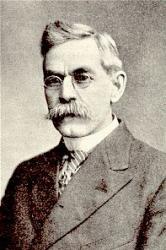Planning worship?
Check out our sister site, ZeteoSearch.org,
for 20+ additional resources related to your search.
- |
User Links
Search Results
[Wanderer from Jesus, weary, sad and lone]
Appears in 2 hymnals Composer and/or Arranger: Fred A. Fillmore Incipit: 55553 16176 55555 Used With Text: Calling Now for Thee
[Wanderer from Jesus, weary, sad and lone]
Calling Now for Thee
Author: Mrs. L. M. Beal Bateman Appears in 18 hymnals First Line: Wanderer from Jesus, weary, sad and lone Refrain First Line: Calling, he is calling Used With Tune: [Wanderer from Jesus, weary, sad and lone]
Calling Now for Thee
Calling Now for Thee
Author: Mrs. L. M. Beal Bateman Hymnal: Songs of Rejoicing #87 (1888) First Line: Wanderer from Jesus, weary, sad and lone Refrain First Line: Calling, he is calling Languages: English Tune Title: [Wanderer from Jesus, weary, sad and lone]
Calling Now for Thee
Calling Now for Thee
Author: Mrs. L. M. Beal Bateman Hymnal: Morning Stars #33 (1890) First Line: Wanderer from Jesus, weary, sad and lone Refrain First Line: Calling, he is calling Languages: English Tune Title: [Wanderer from Jesus, weary, sad and lone]
Calling Now for Thee
Fred A. Fillmore

1856 - 1925 Composer of "[Wanderer from Jesus, weary, sad and lone]" in Songs of Rejoicing Born: May 15, 1856, Paris, Illinois.
Died: November 15, 1925, Terrace Park, Ohio.
Buried: Milford, Ohio.
Frederick Augustus Fillmore, who was born on May 15, 1856, in Paris, IL, one of seven children, five sons and two daughters, born to Augustus Damon and Hannah Lockwood Fillmore. His father was a preacher in the Christian Church, as well as a composer,
songbook compiler, and hymn publisher who developed his own system of musical notation using numbers on the staff in place of note heads. Augustus eventually settled in Cincinnati, OH, and established a music publishing business there. Until 1906, there was no official distinction between "Christian Churches" and "Churches of Christ." The names were used pretty much interchangeably, and many older churches of Christ which are faithful today were once known as "Christian Churches."
Fred and his older brother James took over their father's publishing business following the death of Augustus in 1870 and established the Fillmore Brothers Music House. This became a successful Cincinnati music form, publishing church hymnals and later band and orchestral music. For many years the firm issued a monthly periodical, The Music Messenger. The brothers edited many hymnbooks and produced many songs which became popular. Beginning with the songbook Songs of Glory in 1874, there appeared many Fillmore publications which became widely used through churches, especially in the midwest. For these collections, Fred provided a great deal of hymn tunes.
--launch.groups.yahoo.com/group/hymnoftheday
Fred A. Fillmore
Mrs. L. M. Beal Bateman
1843 - 1943 Author of "Calling Now for Thee" in Songs of Rejoicing Pseudonym: Grace Glenn; Lucinda M. Beal Bateman lived in Ionia, Michigan. She wrote A book of rhymes to suit the times published about 1886 by N. Chapin & Son (Chicago); Gleams of gold published about 1889, and The prohibition speaker: a collection of readings, recitations, dialogues, tableux and songs for temperance and prohibition entertainments published in 1889 by Filmore Bros. (Cincinnati). She married Zadoc Henry Bateman in 1875. They had one daughter, Grace.
Dianne Shapiro, from "A book of rhymes to suit the times" and "The Genealogy of Dennis Bowen Caskey and Michelle Lynn Smith" (caskey-family.com/genhome, retrieved 7-1-2018)
Mrs. L. M. Beal Bateman


 My Starred Hymns
My Starred Hymns


